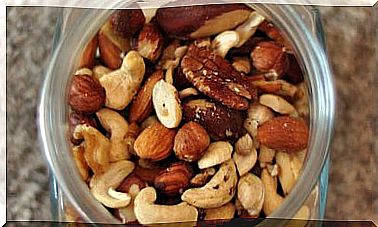Influence Of Stress On The Menstrual Cycle
Just as we know that stress can play an important role in issues such as: sleep quality, weight gain or loss, hair loss, headaches, nervousness and other issues, we also know that there is a certain influence of stress in a woman’s menstrual cycle.
Chronic stress affects the nervous system and, to a greater or lesser extent, the rest of the systems. One of the first consequences that it can have on a woman’s body are hormonal alterations.
Let’s see more below.
The influence of stress on the menstrual cycle

Adrenaline is one of the 4 stress hormones and is responsible for increasing heart rate and increasing energy, while cortisol increases blood sugar levels and brain activity, which can alter immune system responses and other processes.
According to experts from the WomensHealth portal , “women who experience chronic or long-term stress may have more intense premenstrual syndrome (PMS) symptoms or irregular periods. “
So chronic stress can cause delays, absences, and even alter the amount of flow. On the other hand, women may experience annoying symptoms such as a headache, for example, with greater intensity. You may also be more exposed to colds and flus, as your immune system’s defenses can also be affected.
Discover: The 4 stress hormones
Main alterations in the menstrual cycle
It is important to bear in mind that the symptoms of stress can vary from one person to another, therefore, not everyone can experience the same discomfort with the same intensity or during the same period of time.
Let’s look at the main alterations that chronic stress can cause in the menstrual cycle.
Irregularity
The average length of the menstrual cycle ranges in length from 28 to 31 days. Chronic stress can lead to irregular menstrual periods.
- Polymenorrhea: these are very short menstrual cycles, lasting less than 21 days.
- Oligomenorrhea: these are menstrual cycles lasting more than 35 days.
- Amenorrhea: absence of menstruation for more than 3 months or 3 typical menstrual cycles.

More intense pains premenstrual syndrome
As we mentioned before, chronic stress can intensify the symptoms of PMS, and this can translate into various discomforts – of greater or lesser intensity – from headaches and breasts, for example, to abdominal pain. Additionally, it can make the woman much more irritable and sensitive.
According to a study, alterations in hormonal activity during the menstrual cycle can also affect a woman emotionally, since it makes her more prone to experiencing negative emotions.
Fatigue and drowsiness
Due to increased pains caused by stress in the menstrual cycle, women may find it difficult to rest and sleep well at night. Therefore, it is very likely that you will spend your days tired and sleepy.
And what about fertility? What else is there to watch out for?

Because of all the changes stress can bring to the menstrual cycle, it can affect your ability to conceive. This is due to increased cortisol in the brain. This hormone signals the brain that the production of estrogen and progesterone is not necessary. With this, irregular menstruation appears , decreasing the chances of getting pregnant.
The influence of stress on a woman’s menstrual cycle is really detrimental. Therefore, it is advisable to request the professional help of a psychologist, in order to learn how to manage tension and stress on a day-to-day basis.
Additionally, it must be remembered that good lifestyle habits always positively influence the health of all body systems, promoting well-being. Hence in large part the importance of exercising daily, always eating properly, distracting the mind and, if necessary, putting into practice different relaxation techniques. Do you do all this for you? If not, try to remedy it. And remember, if you have doubts about how to do it, you can always consult with your GP or your gynecologist.









